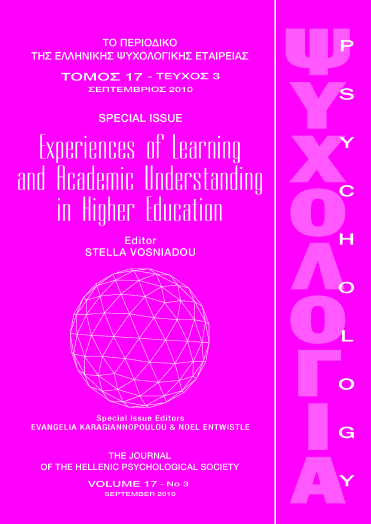The role of language in constituting and expressing personal academic understanding

Abstract
The use of language is central to the constituting and expressing of academic understanding. The theme of this article is set against the background of previous and ongoing phenomenographic research, with a theoretical approach presented as an alternative to main cognitive and socio-cultural approaches. One main characteristic of this research
is a focus on the relation between the learner as an agent and the external situation the learner relates to, especially the subject matter, and the knowledge involved in this relation. It is suggested that to fully
understand the constituting and expressing of academic understanding one has to consider the immediate personal and situational context, and to see the learner as an agent mediating the relation to, and the
significance of, broader cognitive and socio-cultural contexts. This means considering the personal context in a more complete way than is done in either cognitive or socio-cultural orientations. Three cases, selected from previous interview research, are presented to demonstrate the importance of the agency of the learners, using a contextual phenomenographic approach which proved useful in discerning and clarifying the personal, situational, cognitive and socio-cultural contexts within which academic understanding develops.
Article Details
- How to Cite
-
Svensson, L. (2020). The role of language in constituting and expressing personal academic understanding. Psychology: The Journal of the Hellenic Psychological Society, 17(3), 289–306. https://doi.org/10.12681/psy_hps.23768
- Issue
- Vol. 17 No. 3 (2010)
- Section
- SPECIAL SECTION

This work is licensed under a Creative Commons Attribution-ShareAlike 4.0 International License.
The journal PSYCHOLOGY adopts a Platinum open-access policy. Submission, processing or publication costs are waived by the Hellenic Psychological Society. Papers published in the journal PSYCHOLOGY are licensed under a 'Creative Commons Attribution-ShareAlike 4.0 International' licence. The authors reserve the copyright of their work and grant the journal the right of its first publication. Third-party licensees are allowed to use the published paper immediately after publication as they wish, provided they retain the defined by the license copyright formalities, regarding the reference to its author(s) and its initial publication in the journal PSYCHOLOGY. Moreover, any adjusted work should be shared under the same reuse rights, so with the same CC license.


